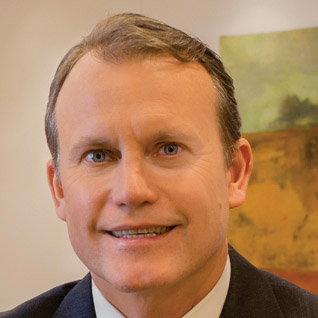After devoting a chunk of his career to the pharmaceutical industry, America’s Health Insurance Plans (AHIP) CEO Matt Eyles is sitting on the other side of the fence with a new set of priorities: lowering prescription drug prices.
“I think that’s close to the top of the list—to really fundamentally address those challenges with that market, which isn’t really a market and doesn’t operate like a market,” Eyles told FierceHealthcare during an interview at the AHIP Institute & Expos last month. “I know that from being in the industry for a long time.”
Eyles, who began his new role as AHIP's CEO on June 1, spent more than a decade crafting public policy for the pharmaceutical industry, first at Eli Lilly and later at Wyeth Pharmaceuticals, a division of Pfizer. After nearly three years at AHIP, he wants to make drug pricing a primary focus as he takes the reins from Marilyn Tavenner.

RELATED: Senators press PBMs to clarify Azar's ‘extremely disturbing' drug pricing allegations
To do that, he’s advocating for greater transparency both in how prices are set and how manufacturers decide to increase prices. On the regulatory side, he said creating a “true biosimilars market” will boost competition among drugmakers.
Legislatively, Eyles supports the Creates Act, introduced in the House and the Senate, that aims to ease the pathway for biosimilars to enter the marketplace.
Food and Drug Administration (FDA) Commissioner Scott Gottlieb has criticized the industry for allowing biosimilars to languish in a “rigged” contracting system. Biosimilar development is a key element in the White House’s plan to bring down drug prices.
"Right now, that market hasn't really emerged," Eyles said. "There are only a couple of products and the rules are not really conducive to that market emerging."
The emphasis on drug prices is one part of AHIP’s broader focus on affordability. Eyles says the association wants to drive a “bigger national dialogue around affordability and value,” pointing to a fundamental responsibility by health insurers to lower costs for consumers.
He pointed the finger at provider consolidation—specifically the ongoing trend of health systems purchasing physician practices. Although those transactions are often less visible than system megamergers, they have “a pretty significant impact on affordability.”
“Our goal is [to provide] the lowest cost insurance product they can offer in the market,” he said. “To the extent you’re working contrary to that, you’re going to lose customers from the insurance side. Hospital and health systems have different incentives in that way, but if people can’t afford an insurance product, they’re not going to buy it.”
RELATED: Jamie Dimon says Amazon, Berkshire partnership ‘pissed off’ healthcare companies
Eyles is entering his new role at a time when retail and tech companies are looking for ways to flip the traditional healthcare business model on its head through new partnerships and outright mergers that offer an opportunity to tackle an industry that is creeping up on 20% of the country’s gross domestic product.
While JPMorgan Chase CEO Jamie Dimon has previously said healthcare stalwarts were “pissed off” with the company’s partnership with Amazon and Berkshire Hathaway aimed at tackling healthcare costs, Eyles says insurers are embracing disruption.
“I think there’s more excitement than anxiety, overall,” he said.